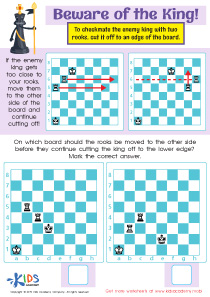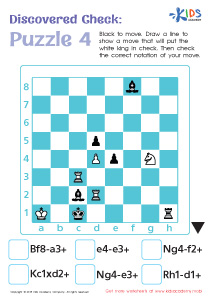Problem-Solving Skills Easy Chess Worksheets for Ages 6-9
4 filtered results
-
From - To
Introducing our "Problem-Solving Skills Easy Chess Worksheets," tailored specifically for kids aged 6-9! These engaging printables are designed to develop young minds through the intriguing world of chess, enhancing critical thinking and strategic planning. Each worksheet offers simple chess puzzles and step-by-step challenges that make learning fun and accessible. Perfect for beginners, our worksheets ensure children grasp foundational chess concepts while honing essential problem-solving skills. Ideal for classroom settings, homeschooling, or just for fun, these resources provide a delightful way to promote mental agility and creativity. Download now to start your child's journey toward becoming a chess whiz!
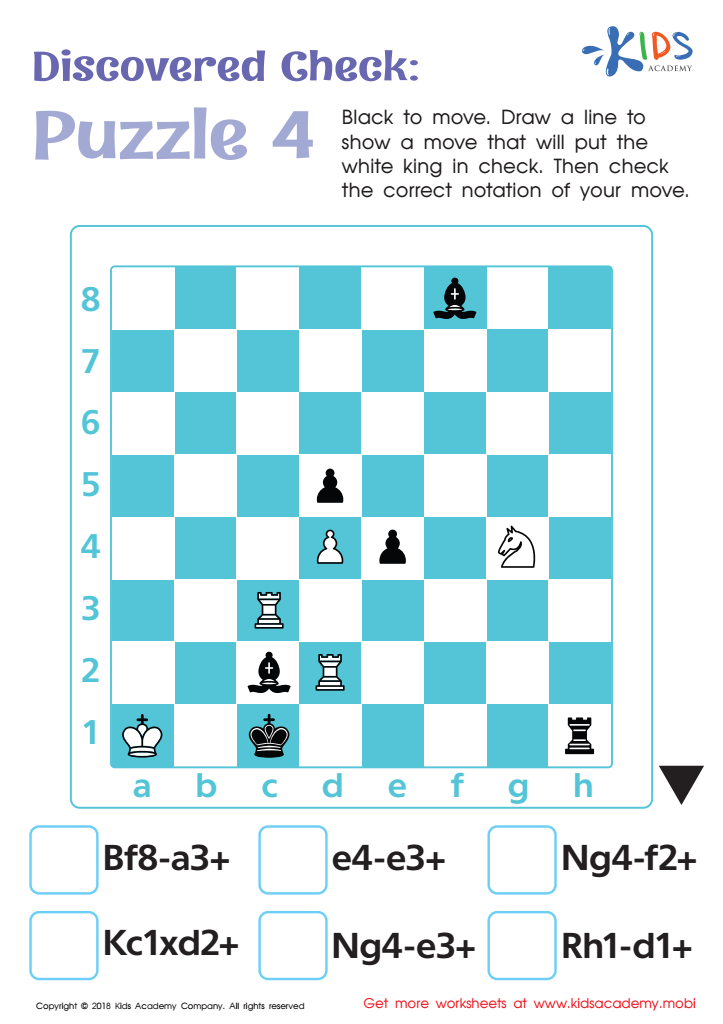

Discovered Check: Puzzle 4 Worksheet


Discovered Check: Puzzle 2 Worksheet
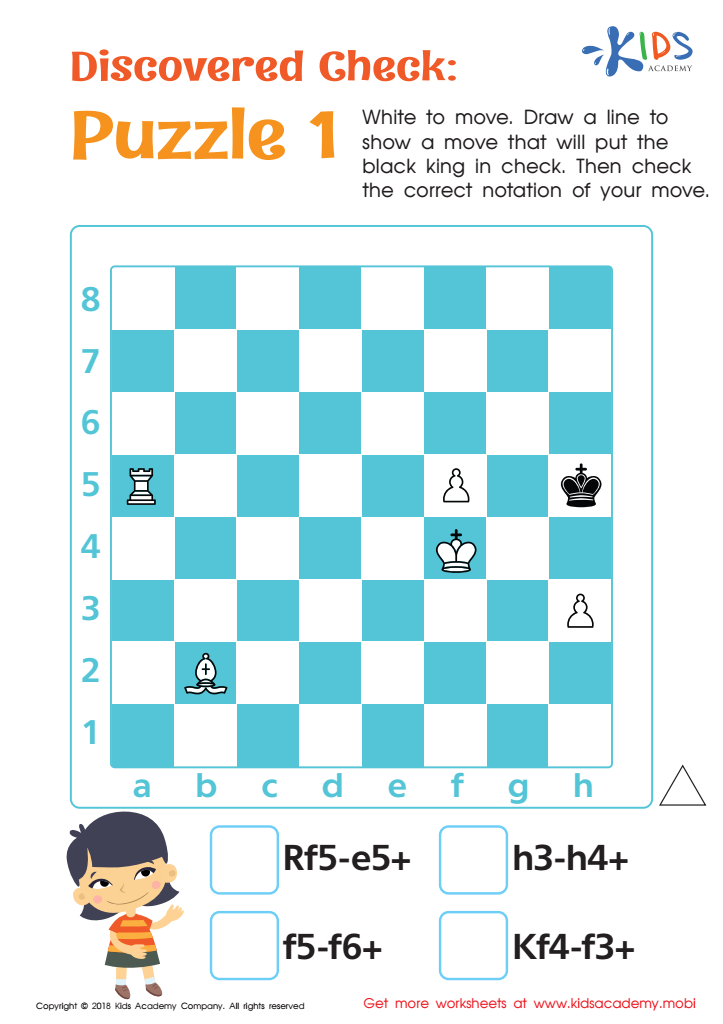

Discovered Check: Puzzle 1 Worksheet
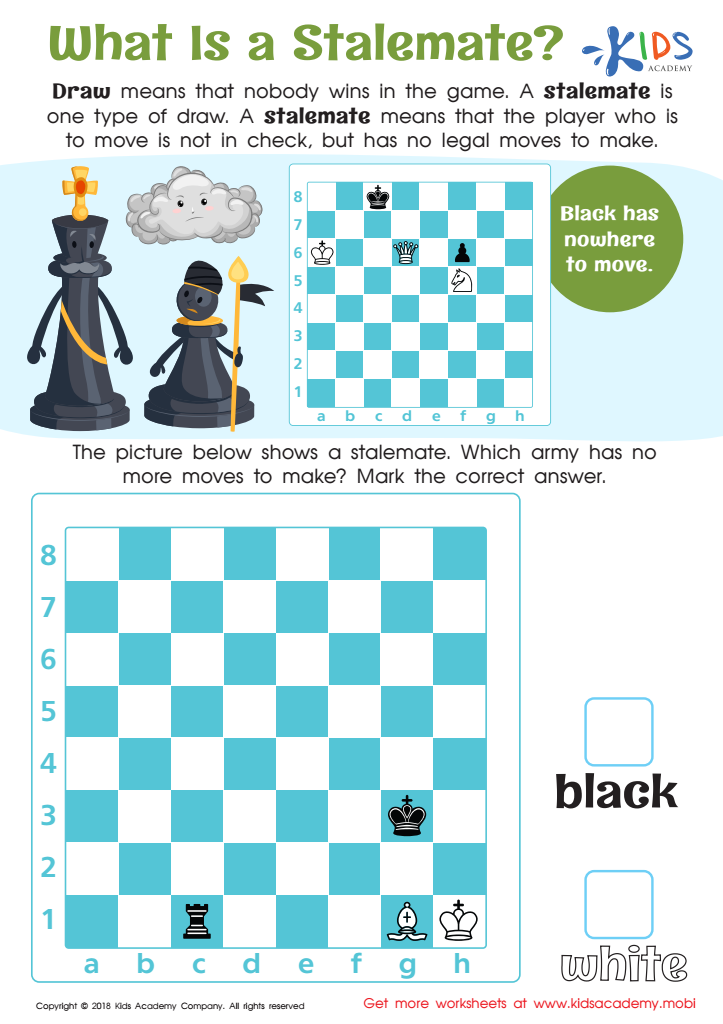

What Is a Stalemate? Worksheet
Developing problem-solving skills is crucial for the overall intellectual growth of children. Easy Chess for ages 6-9 serves as an excellent tool for teaching these skills in a fun and engaging way. Chess, often referred to as the "game of kings," requires strategic thinking, planning, and foresight, which can help children improve cognitive functions and enhance their ability to tackle complex problems systematically.
For parents and teachers, integrating Easy Chess into a child’s routine can offer numerous benefits. Firstly, it boosts critical thinking by challenging students to analyze different scenarios and anticipate possible outcomes. This analytical process teaches children how to approach problems logically, a skill that is transferable to academic subjects like math and science.
Secondly, Easy Chess fosters patience and discipline. Wariness before making moves encourages thoughtful decision-making, pushing children to consider long-term consequences rather than opting for immediate gratification. This attribute is beneficial in real-life situations where patience and deliberate thinking are essential.
Moreover, the game encourages perseverance. Children learn that mistakes are part and parcel of the learning process, providing valuable lessons on resilience. Socially, it encourages communication skills through discussions about strategies and moves, enabling better peer interaction and teamwork.
In conclusion, Easy Chess is not just a game; it is a multifaceted educational tool that prepares children for a brighter future by developing impelling cognitive and social skills.

 Assign to My Students
Assign to My Students










